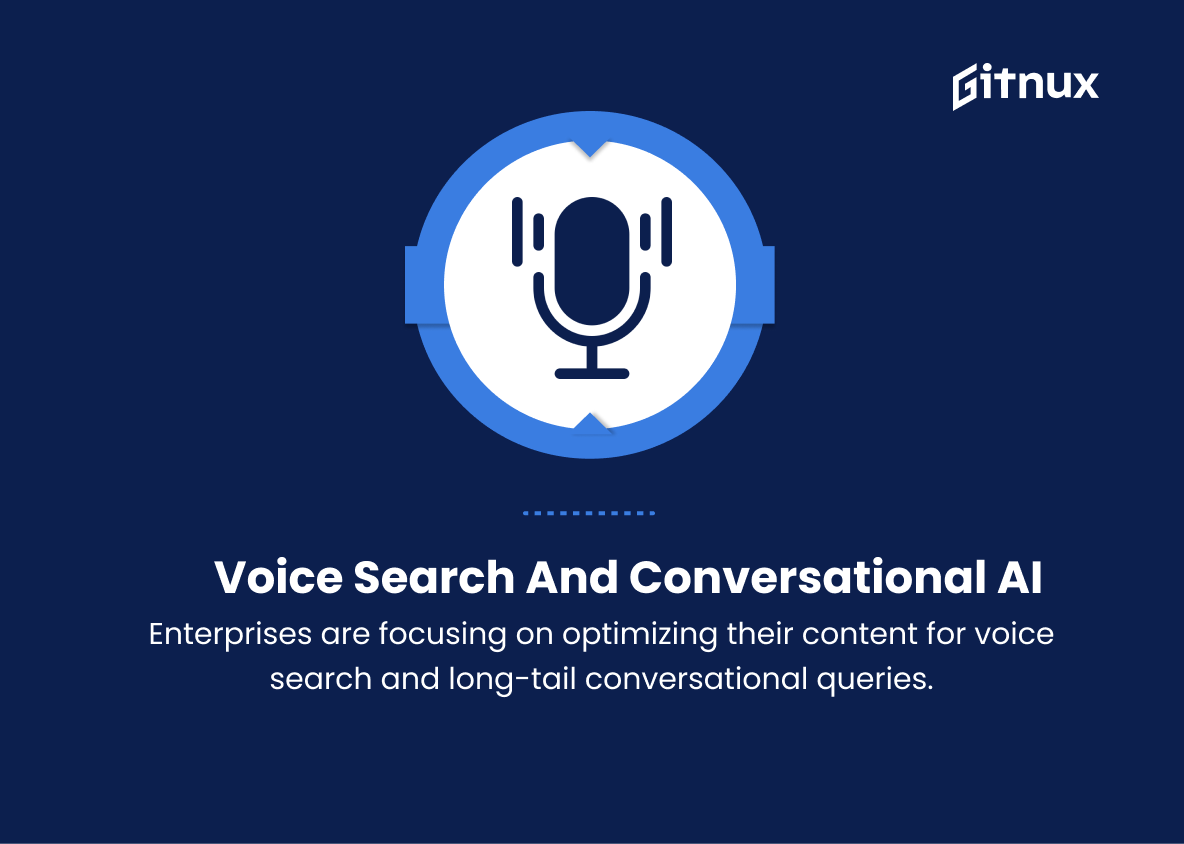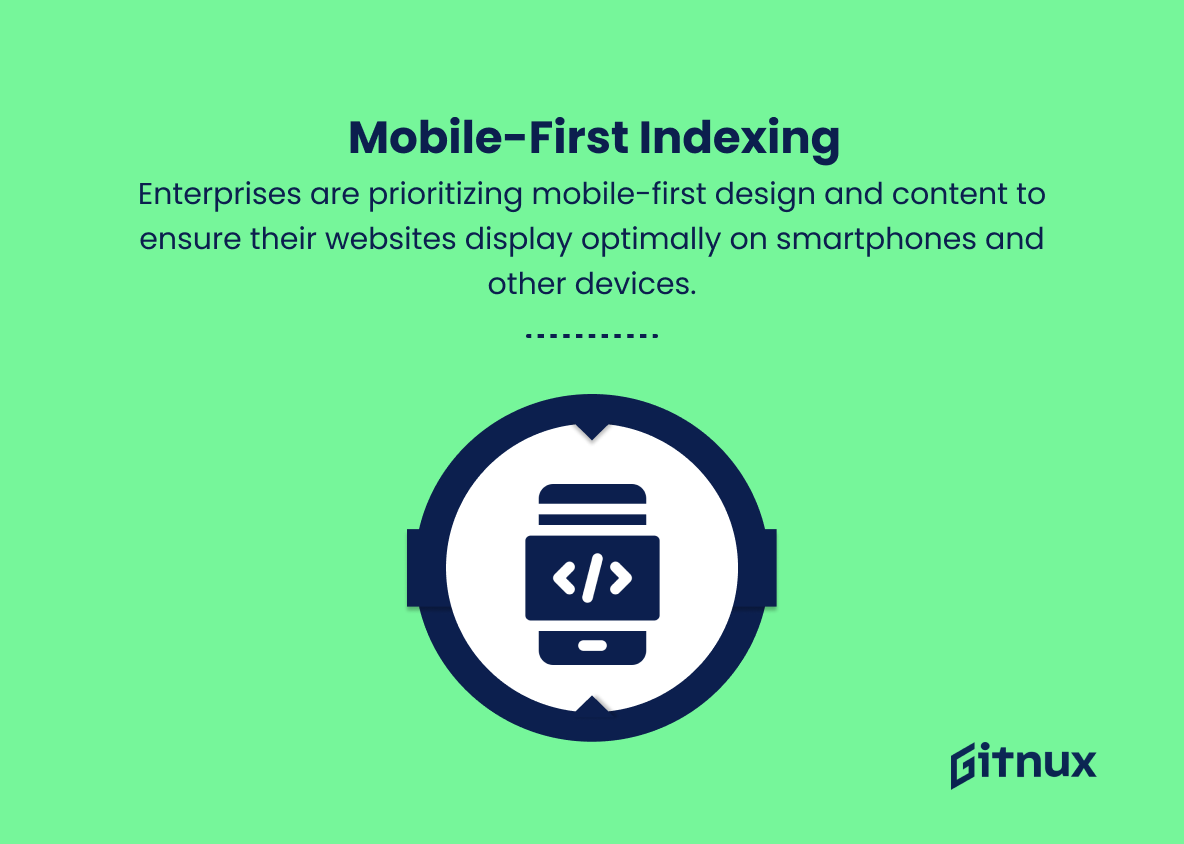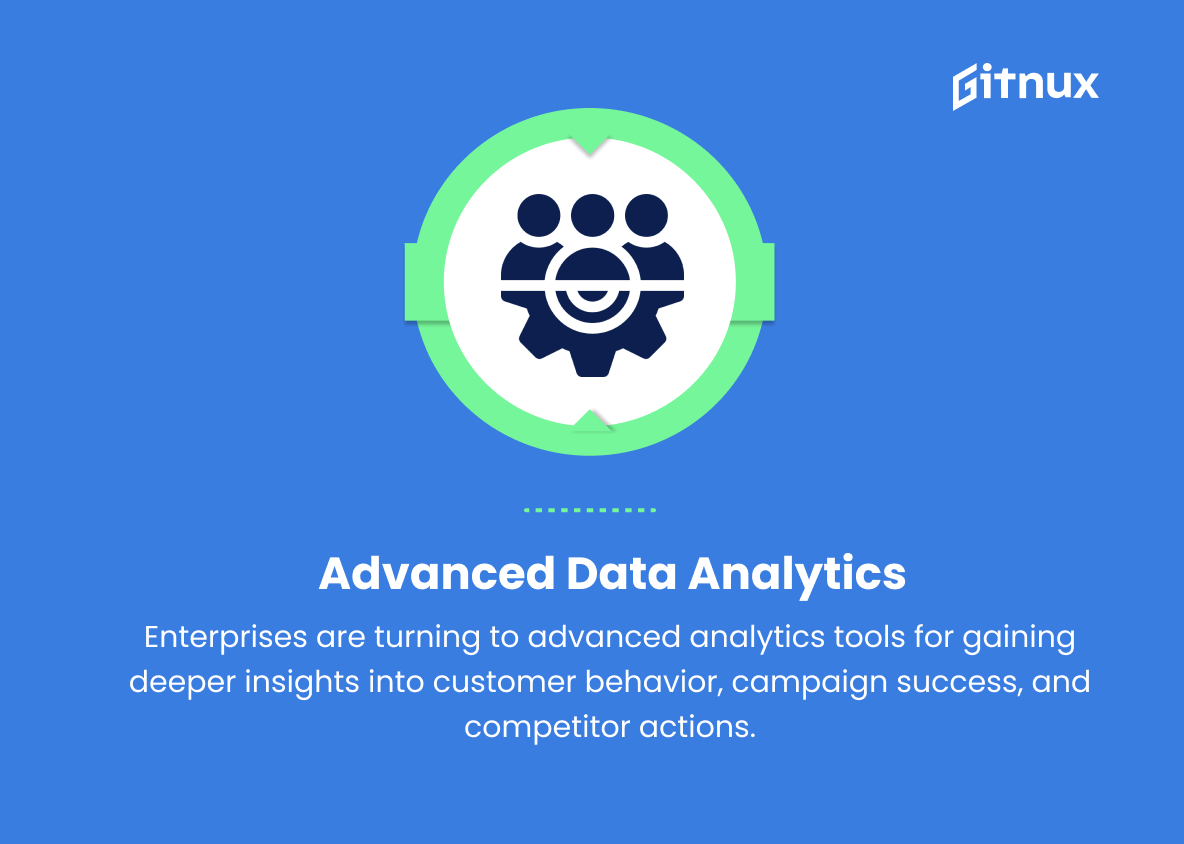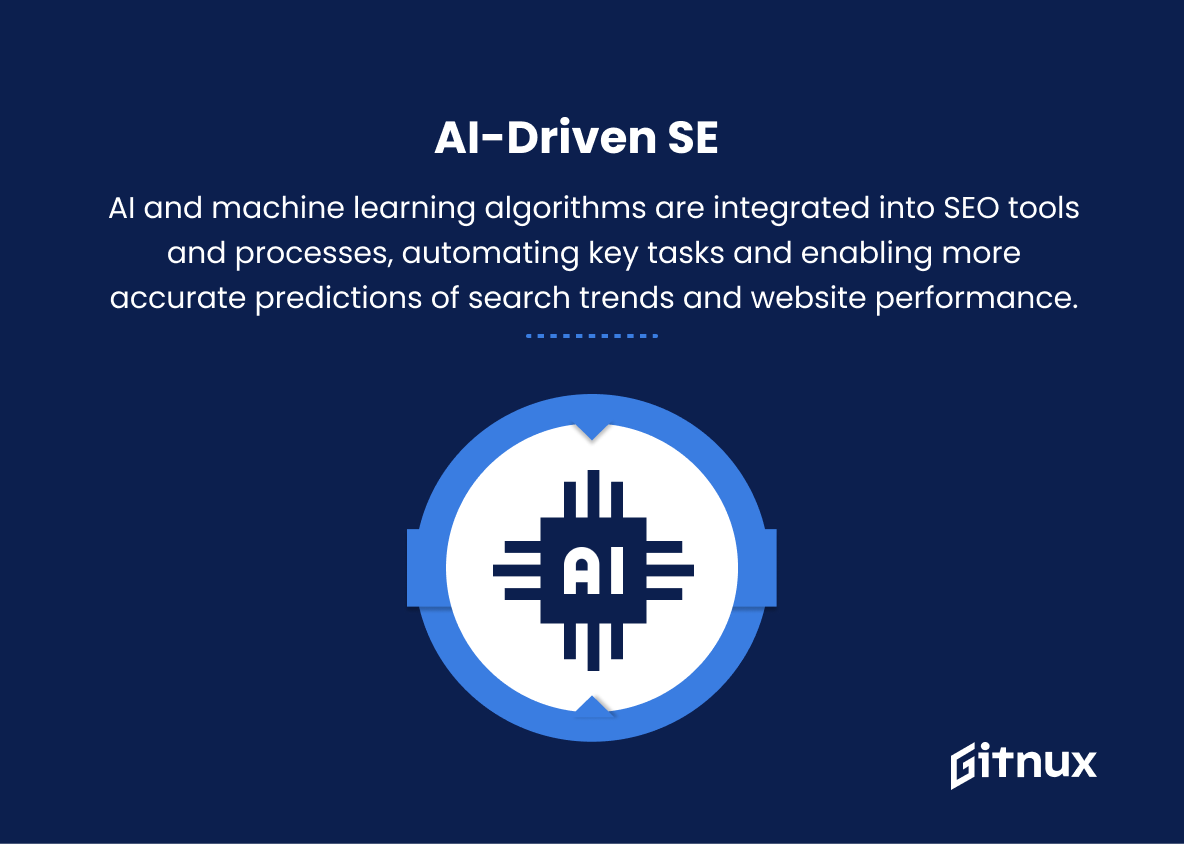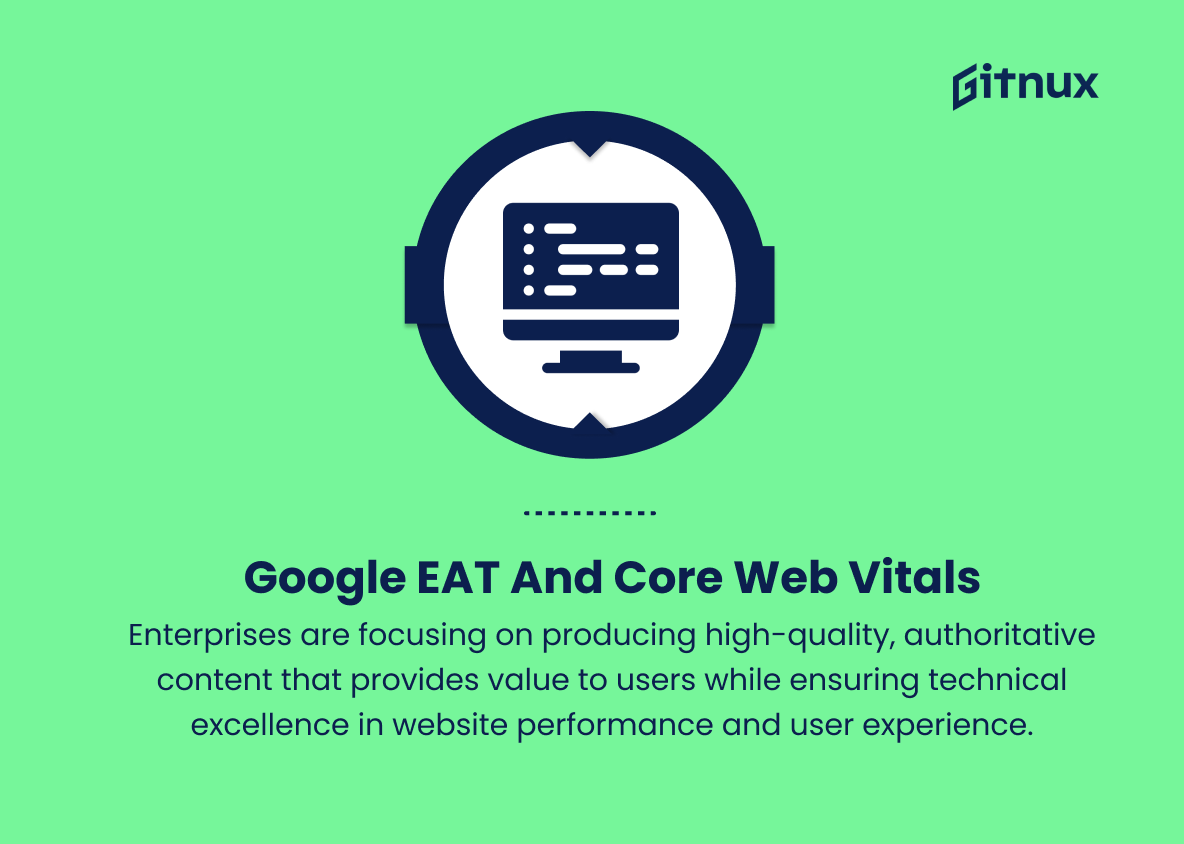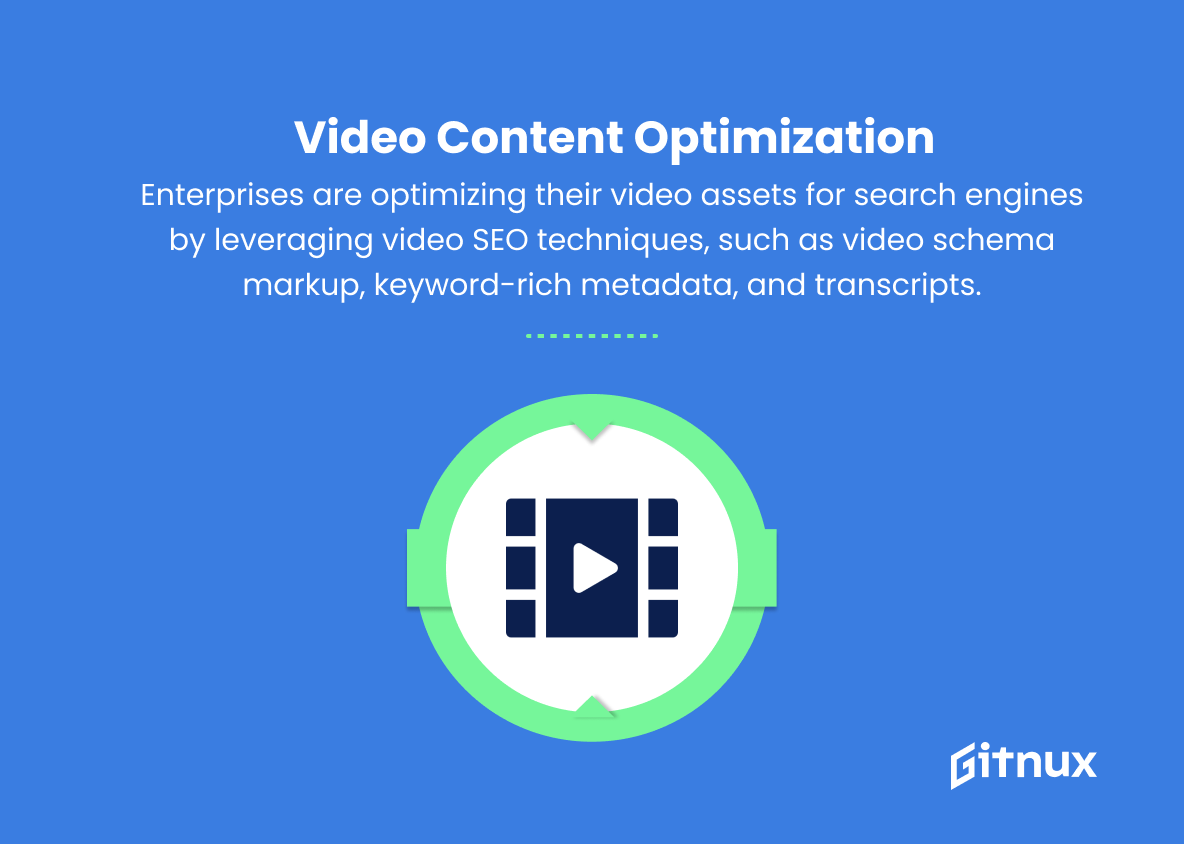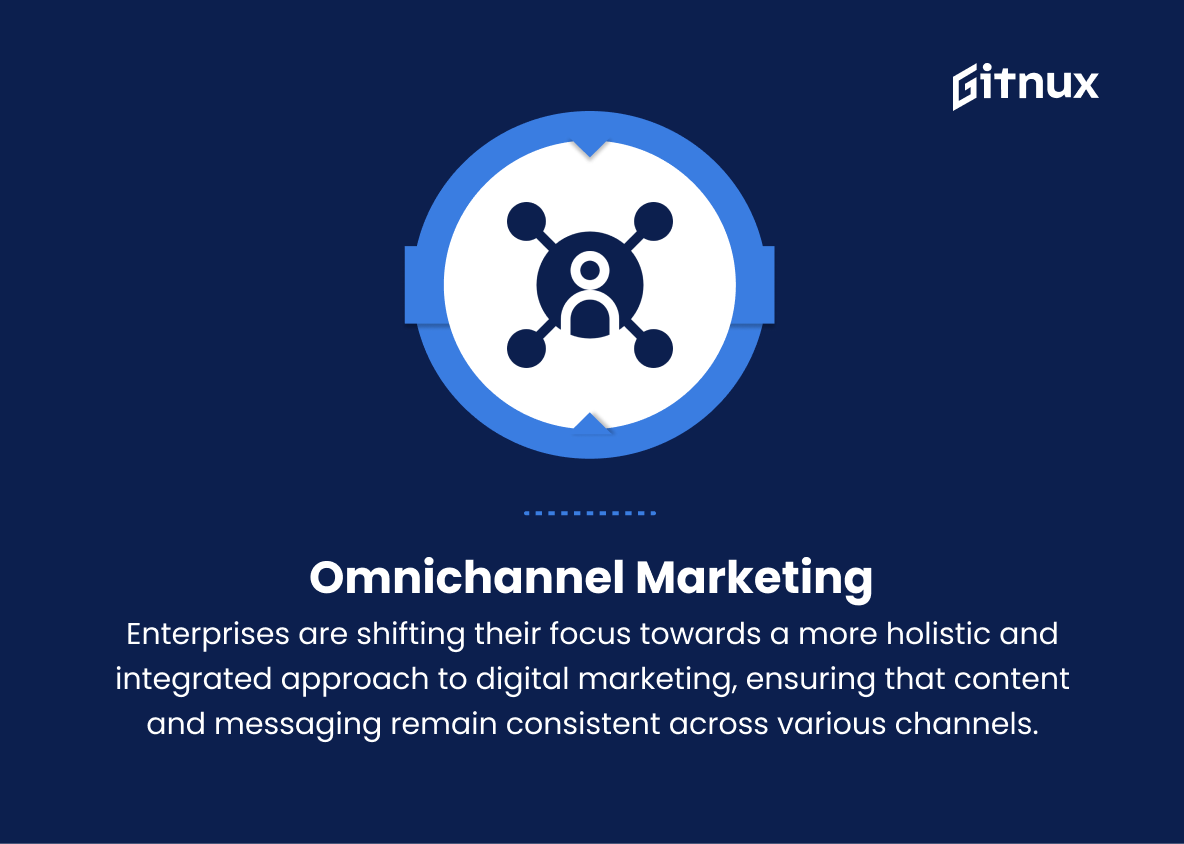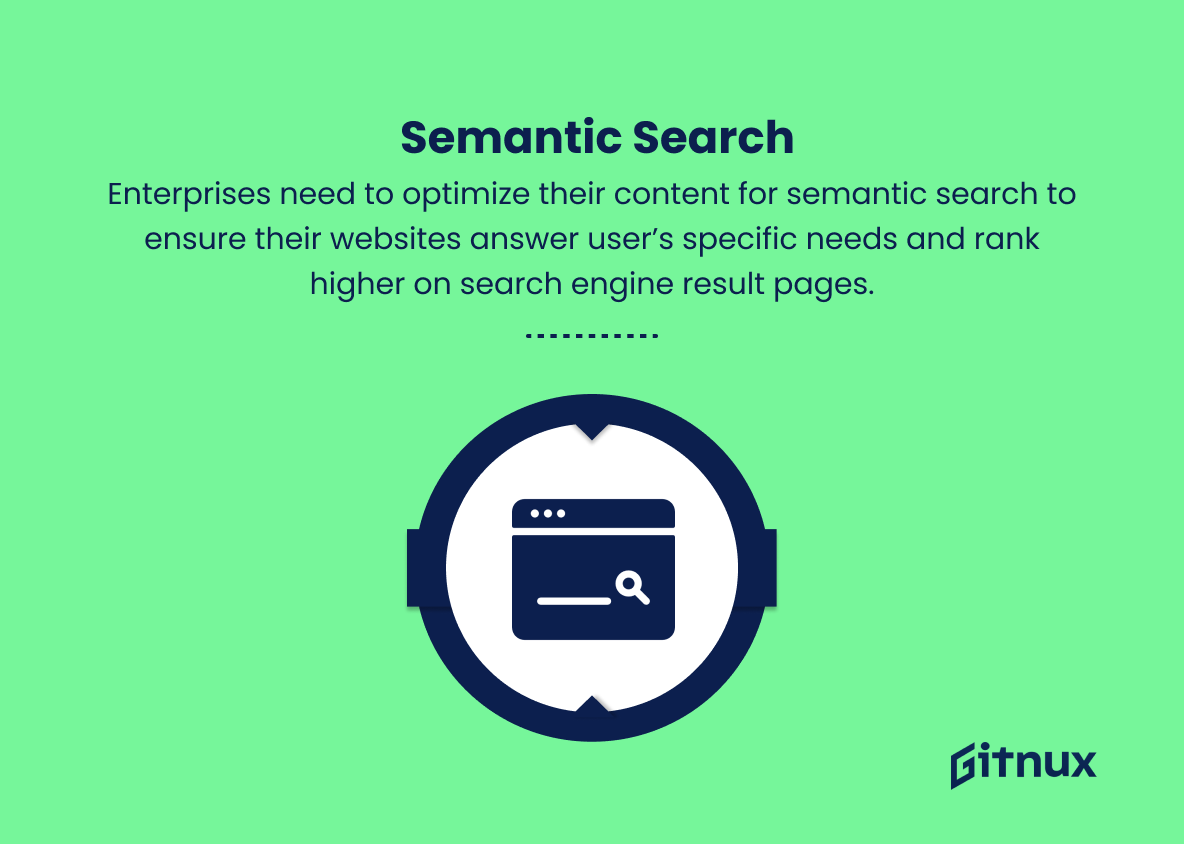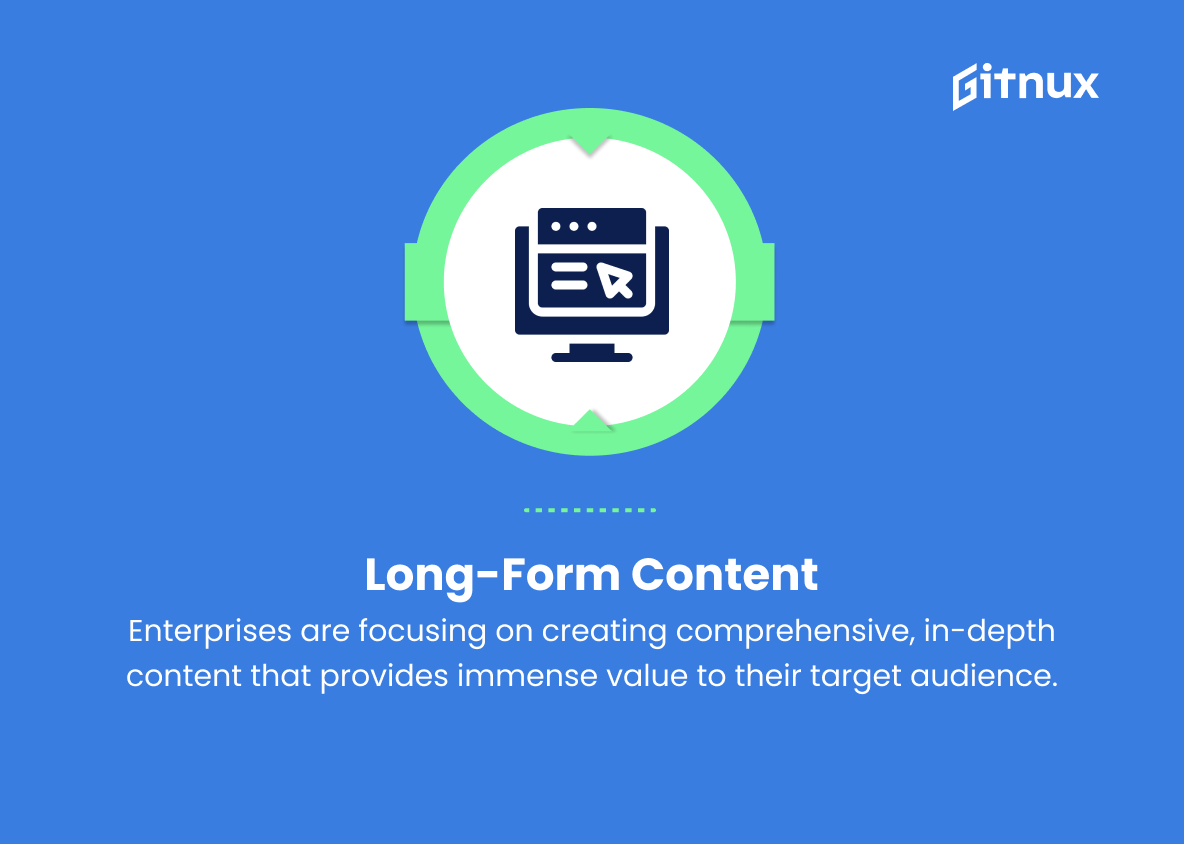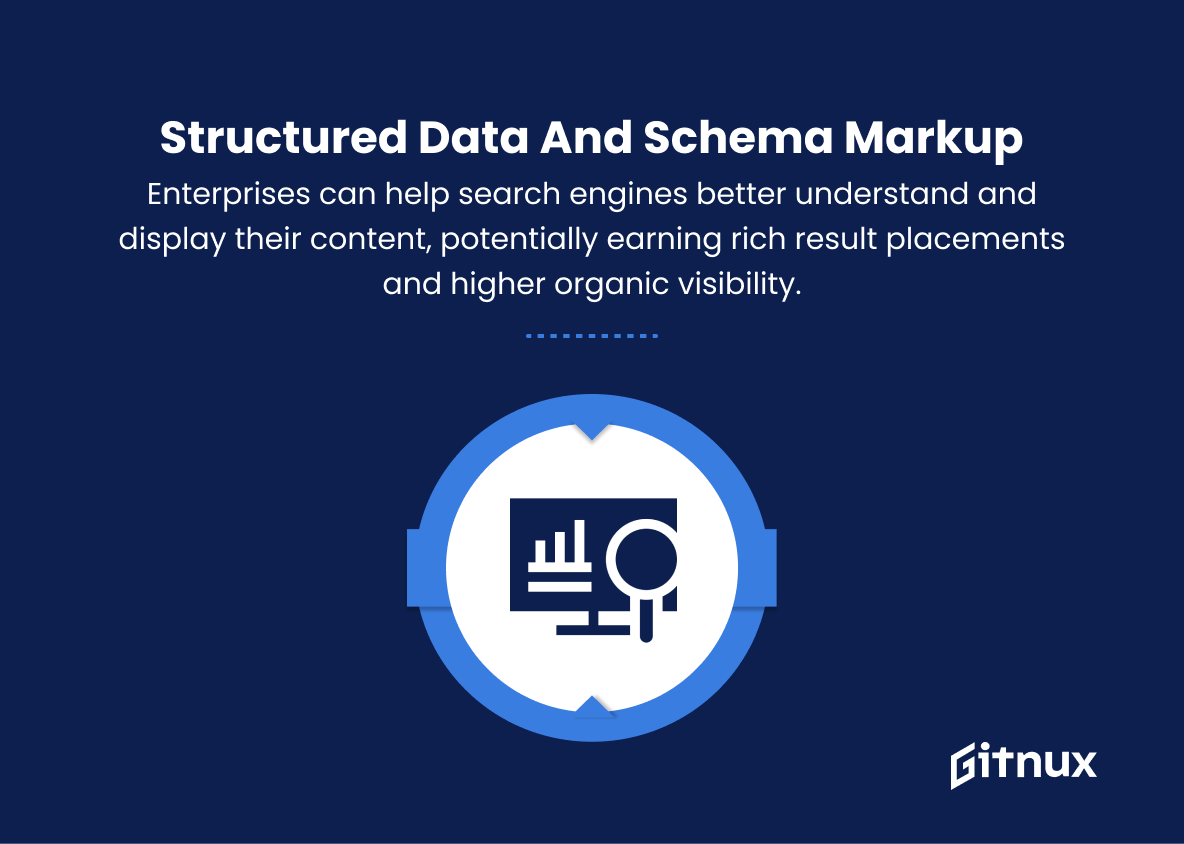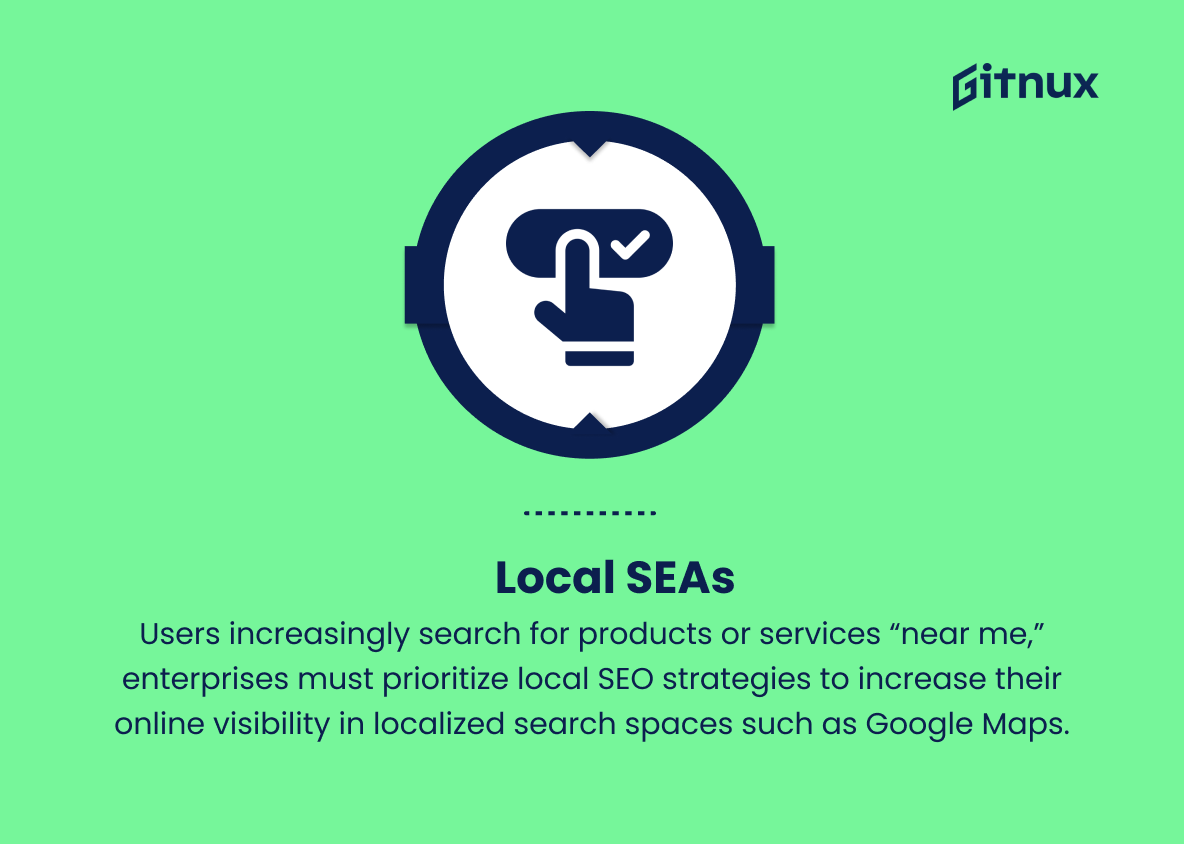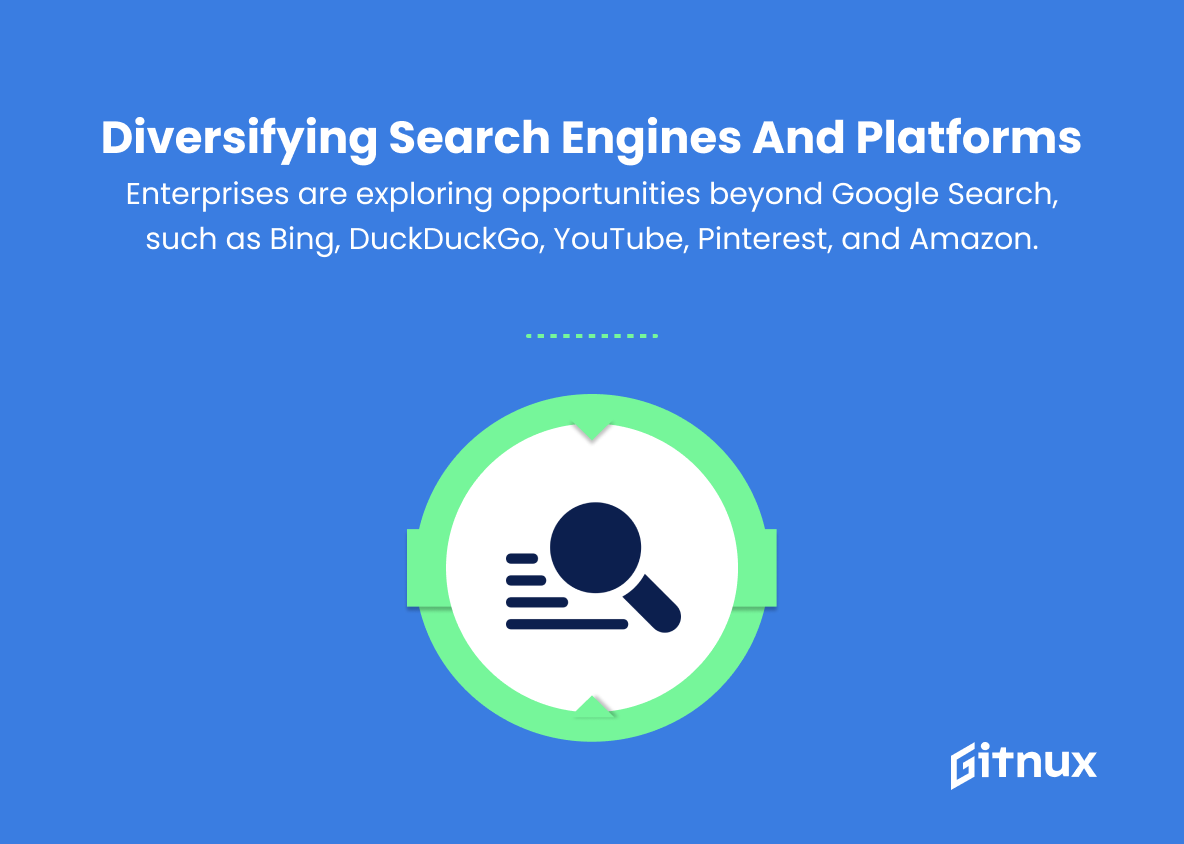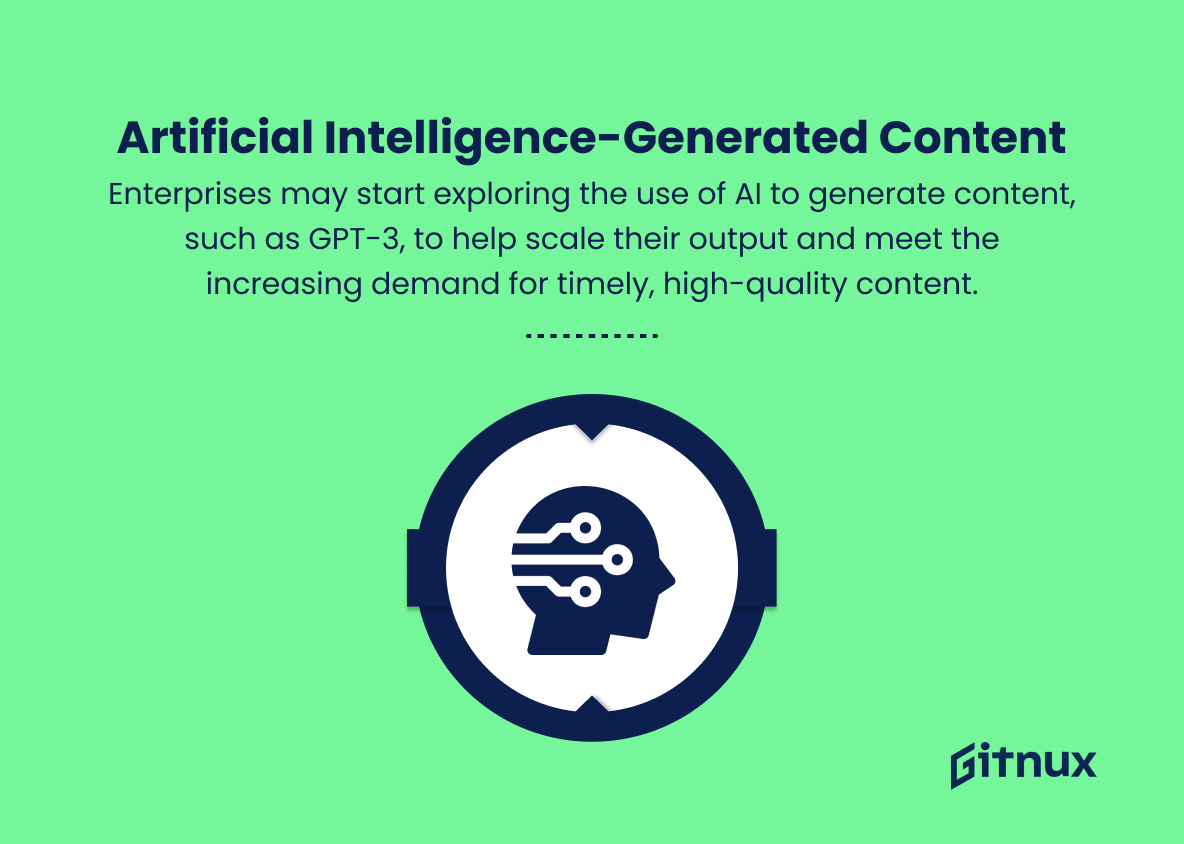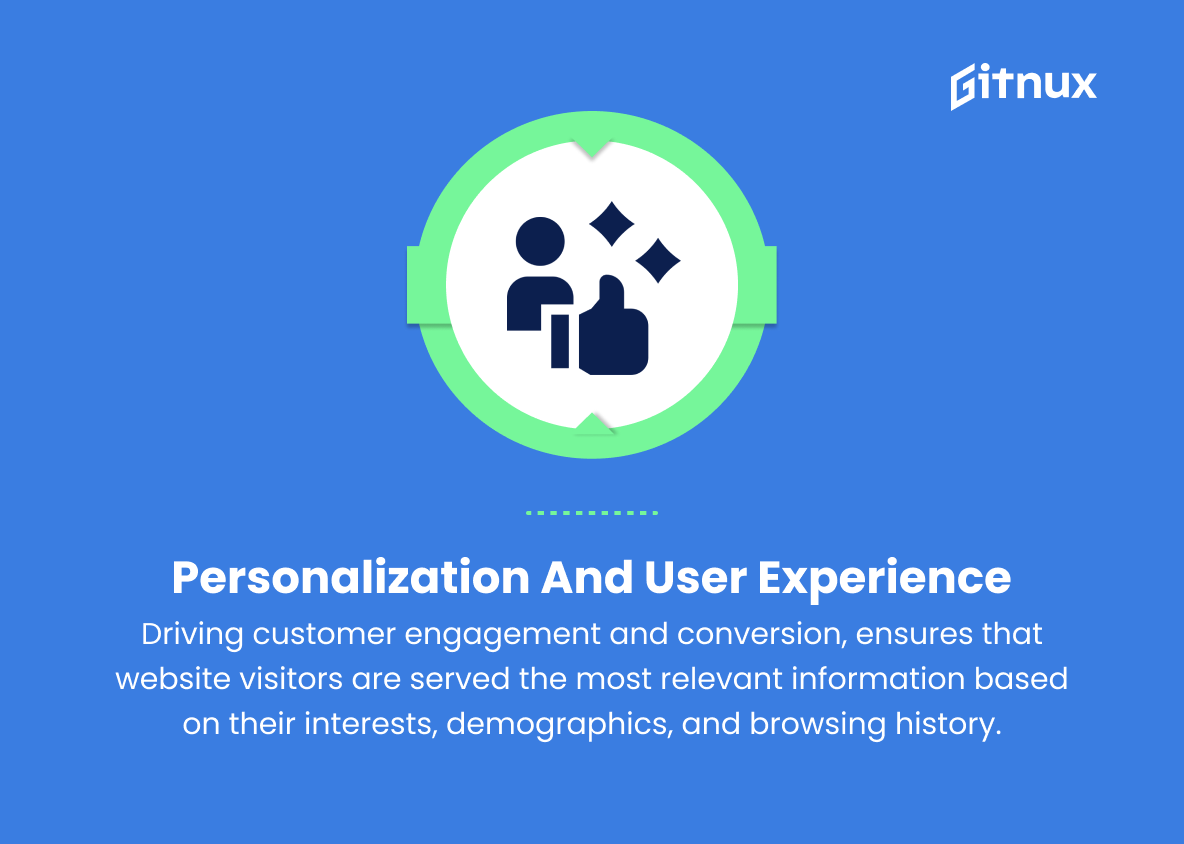In today’s rapidly evolving digital landscape, staying ahead of the curve is more crucial than ever for businesses that want to maintain their competitive edge. This is particularly true for large-scale companies engaging in Enterprise SEO, where solving complex challenges, improving organic search rankings, and launching value-driven digital campaigns are the keys to a winning strategy. As we dive into the constantly changing world of search engine optimization, it is essential to keep pace with the latest industry trends for achieving success. In this blog post, we will explore the most prominent Enterprise SEO trends and strategies that are paving the way for better visibility, higher traffic, and increased revenue generation – ensuring that your business remains at the forefront of the online universe.
Top Enterprise Seo Trends
1. Voice search and conversational AI
With the growing popularity of voice search assistants, such as Amazon Alexa and Google Assistant, enterprises are focusing on optimizing their content for voice search and long-tail conversational queries.
2. Mobile-first indexing
With mobile devices generating the majority of global website traffic, enterprises are prioritizing mobile-first design and content to ensure their websites display optimally on smartphones and other devices.
3. Advanced data analytics
Enterprises are turning to advanced analytics tools for gaining deeper insights into customer behavior, campaign success, and competitor actions, helping inform informed decision-making and efficient resource allocation.
4. AI-driven SE
Artificial Intelligence (AI) and machine learning algorithms are increasingly being integrated into SEO tools and processes, automating key tasks and enabling more accurate predictions of search trends and website performance.
5. EAT (Expertise, Authoritativeness, and Trustworthiness) and Core Web Vitals
These key factors continue to play a central role in shaping Google’s search algorithms. Enterprises are focusing on producing high-quality, authoritative content that provides value to users while ensuring technical excellence in website performance and user experience.
6. Video content optimization
As video content dominates the online landscape, enterprises are optimizing their video assets for search engines by leveraging video SEO techniques, such as video schema markup, keyword-rich metadata, and transcripts.
7. Omnichannel marketing
Enterprises are shifting their focus towards a more holistic and integrated approach to digital marketing, ensuring that content and messaging remain consistent across various channels, including search, email, social media, and mobile apps.
8. Semantic search
Search engines are increasingly working to understand the intent behind user queries, known as semantic search. Enterprises need to optimize their content for semantic search to ensure their websites answer user’s specific needs and rank higher on search engine result pages.
9. Long-form content
Long-form content strategies are proving to be effective in driving both organic traffic and user engagement. Enterprises are focusing on creating comprehensive, in-depth content that provides immense value to their target audience.
10. Structured data and schema markup
By utilizing structured data and schema markup, enterprises can help search engines better understand and display their content, potentially earning rich result placements and higher organic visibility.
11. Local SEAs
Users increasingly search for products or services “near me,” enterprises must prioritize local SEO strategies to increase their online visibility in localized search spaces such as Google Maps.
12. Diversifying search engines and platforms
As search engine market share continues to shift and emerging platforms gain popularity, enterprises are exploring opportunities beyond Google Search, such as Bing, DuckDuckGo, YouTube, Pinterest, and Amazon.
13. Enhanced security and privacy measures
With rising concerns over data privacy, enterprises must prioritize securing their websites, adhering to industry-standard HTTPS protocols and implementing strong data protection policies.
14. Artificial intelligence-generated content
Enterprises may start exploring the use of AI to generate content, such as GPT-3, to help scale their output and meet the increasing demand for timely, high-quality content.
15. Personalization and user experience
Personalizing content and user experiences will continue to play a pivotal role in driving customer engagement and conversion, ensuring that website visitors are served the most relevant information based on their interests, demographics, and browsing history.
Implications
The future of enterprise SEO will be shaped by several key trends as businesses adapt to evolving technological advancements and user behaviors. The increasing adoption of voice search, conversational AI, and mobile-first indexing will force enterprises to optimize their content strategies for long-tail conversational queries and ensure their websites are designed for mobile devices. Advanced data analytics will drive informed decision-making, while AI-driven SEO and AI-generated content will expedite key tasks and enable accurate predictions. Techniques such as EAT, Core Web Vitals, video content optimization, semantic search, long-form content, structured data, schema markup, and local SEO will take center stage as businesses strive to be more discoverable, authoritative, and engaging.
Furthermore, diversifying search engines and omnichannel marketing will ensure consistent messaging across all digital channels. As privacy becomes crucial, enterprises must put greater focus on enhancing their security measures, and with the use of personalization and user experience optimization, they will continue to drive customer engagement and brand loyalty.
Conclusion
In summary, enterprise SEO is an ever-evolving landscape that requires continuous adaptation and foresight to stay ahead of the curve. As we have explored, there are several key trends shaping the future of enterprise SEO, including an increased focus on user experience, artificial intelligence, voice search, and greater transparency. By staying informed and adjusting your strategies to incorporate these trends, your enterprise will be well-positioned to maintain a robust online presence and ultimately, achieve continued success in an increasingly competitive digital world. It’s crucial for businesses to embrace these advancements in technology and approach SEO with a comprehensive and forward-thinking mindset so they can drive meaningful results and secure their place at the top of the search engine rankings.
